
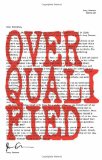
(ECW Press, 2009)
A novel told in cover letters, which shouldn’t work, but it does. As always, Comeau’s work is touching and disturbing in almost equal measures.
107. tether, by Jill Stengel
(above/ground press, 2013)
108. Mnemotechnics, by Jessica Smith
(above/ground press, 2013)
109. punchlines 1.0, by Aaron Tucker
(above/ground press, 2013)
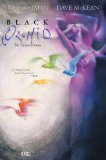
(Vertigo, 2013)
Gaiman’s reinvention of DC’s Black Orchid pre-dates Sandman. This is the first time the issues have been collected as a graphic novel. It’s an unusual story, with the usual tropes twisted, but saying much about it would spoil it for those as yet unfamiliar with it.
111. Sub Rosa, by Amber Dawn
(Arsenal Pulp Press, 2009)
Magical prostitutes and shadowy otherworlds, and a hell of a début novel.
112. Buffy the Vampires Slayer: Tales of the Vampires, by Joss Whedon
(Dark Horse, 2004)
A chance to see the Buffyverse from the vampire’s point of view.
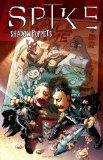
(IDW, 2007)
In the television series Angel, “Smile Time” was a chance for Joss Whedon to explore the puppetry of his father’s world (his father, Tom Whedon, wrote for The Muppets) via the lens of the Buffyverse. It was silly, but entertaining.
Smile Time has been resurrected, this time in Japan, for no obvious reason. Lynch manages to capture the silly, but it’s fairly plotless, as is typical of his work. Even so, it may be his best Spike fanfiction yet.
114. The Art of Fiction, by John Gardner
(Vintage, 1984, 1991)
Ostensibly for young writers, this guide to fiction writing is a fairly solid introduction to the craft. It strives to be non-prescription, but the best parts are where Gardner moralizes and makes recommendations.
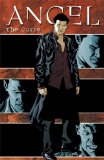
(IDW, 2006)
Jeff Mariotte writes a world without women, except as standbys who depart or die quickly. David Messina populates Angel’s world solely with large breasted women who wear black thongs, which are always inexplicably showing riding high above their low cut pants. Writing’s weak, art is simplistic at best. Ultimately disappointing.
116. Angel, Vol. 2: Old Friends, by Jeff Mariotte
(IDW, 2006)
More of the same. Ugh.

(Cambridge University Press, 1961, 2012)
Lewis’ valuation of the critic suggests that they do not enrich our understanding of a text. He believed that, with careful thought, an astute reader could reach these conclusions themselves, and that the reader would be better served rereading a given text than its criticism. I can’t agree with this, at least not wholly. I’d be out of a job.
118. The Rabble of Downtown Toronto, by Jason Kieffer
(First Printing, 2009)
I don’t know what to make of this. It’s voyeuristic and, as the kids on the Internet say, it gives me bad feels. These people are catalogued for what they are, not whom, and it feels exploitive. That Kieffer includes a portrait of himself among this “rabble” does nothing to mitigate my feelings of unease.
119. The Will to Change, by Adrienne Rich
(WW Norton & Co., 1971)

(Writer’s Digest Books, 2010)
Perhaps the problem is mine. With this title, I expected a book about writing productively, time management, and best practices. Instead, I got a self-help book for writers, with a dearth of chin-up messages and inspirational quotes. There’s some good stuff in here, but there’s also a lot of fluff which could have been cut.
121. Gender Outlaw, by Kate Bornstein
(Vintage, 1994)
I had to keep checking the date on this – the language, tone and word usage is very much set in the ’90s, and it’s kind of heartbreaking for that.
Bornstein is a MTF transexual, though s/he now seems to identify outside the gender binary entirely. It’s a frank, touching and funny first-person account of what it’s like to go through the transition physically, psychologically and socially.
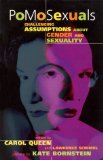
(Cleis Press, 1997)
Also from the ’90s, I had problems with many of the pieces in this. There are later books that have covered the same topics more extensively and with fewer complications. That said, there were a couple of stand out essays as well.
123. Nobody Passes, edited by Mattilda Bernstein Sycamore
(Seal Press, 2006)
Dealing with “passing” in a variety of ways, sexually in various expressions, racially, and socially, I feel it tried to take on too much. The editor made a point of wanting to cover a variety of topics within one collection, but without a central focus the collection…lacks focus. The pieces don’t build on and support one another, instead the dance from topic to topic without forming a cohesive whole. Again, that said, there are some great pieces in here.

